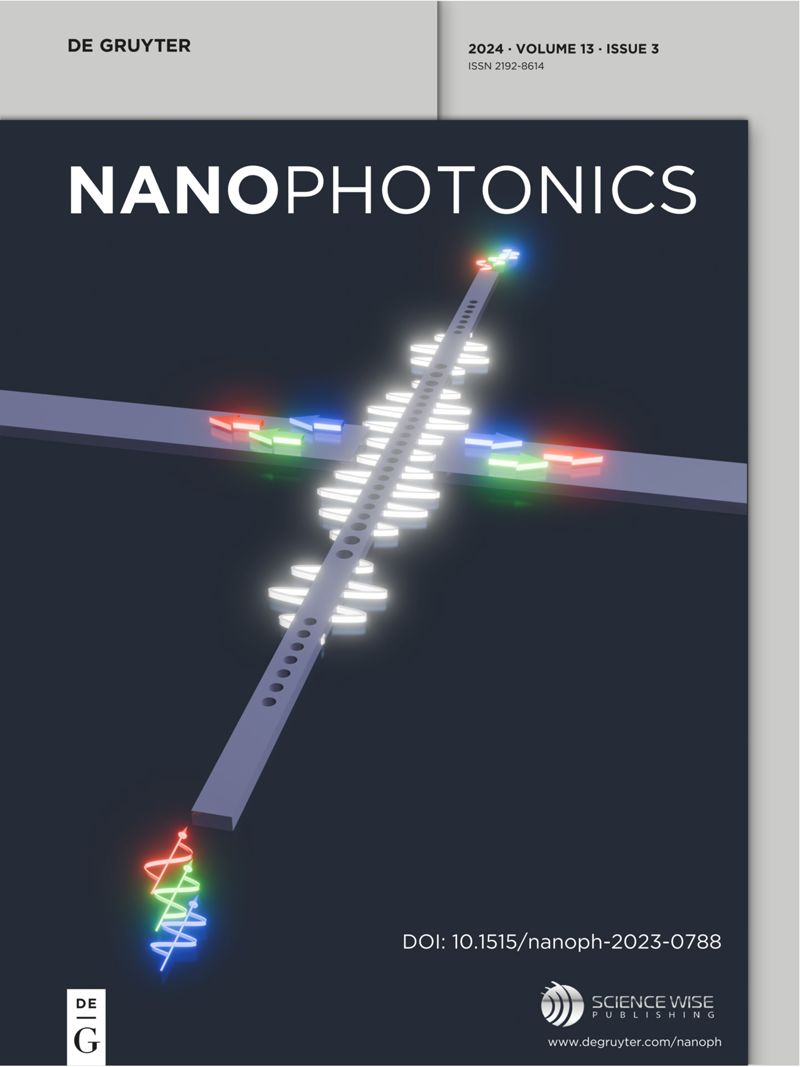利用飞秒激光写入技术制造高保真、偏振不敏感的通用光子处理器
IF 6.5
2区 物理与天体物理
Q1 MATERIALS SCIENCE, MULTIDISCIPLINARY
引用次数: 0
摘要
通用光子处理器(UPP)是完全可编程的光子集成电路,是量子光子学的关键组件。在这项工作中,我们展示了一个基于飞秒激光写入(FLW)的新型平台,用于实现低损耗、低功耗和高保真的 UPPs,并兼容大波长光谱。事实上,我们展示了为在 785 纳米和 1550 纳米波长下工作而定制的不同 UPP,它们具有类似的高级性能。此外,我们还展示了应用于 FLW-UPPs 的标准校准技术所实现的哈尔随机偏振不敏感光子变换,其平均振幅保真度在 785 nm 波长下高达 0.9979(1550 nm 波长下为 0.9970),由于采用了新颖的优化算法,保真度有可能提高到 0.9990 以上。除了首次展示了对偏振不敏感的 UPP 外,这些器件还展示了 FLW 电路有史以来最高水平的可控性和可重构性。这些特性将极大地促进量子信息处理的应用。本文章由计算机程序翻译,如有差异,请以英文原文为准。
High-fidelity and polarization-insensitive universal photonic processors fabricated by femtosecond laser writing
Universal photonic processors (UPPs) are fully programmable photonic integrated circuits that are key components in quantum photonics. With this work, we present a novel platform for the realization of low-loss, low-power, and high-fidelity UPPs based on femtosecond laser writing (FLW) and compatible with a large wavelength spectrum. In fact, we demonstrate different UPPs, tailored for operation at 785 nm and 1550 nm, providing similar high-level performances. Moreover, we show that standard calibration techniques applied to FLW-UPPs result in Haar random polarization-insensitive photonic transformations implemented with average amplitude fidelity as high as 0.9979 at 785 nm (0.9970 at 1550 nm), with the possibility of increasing the fidelity over 0.9990 thanks to novel optimization algorithms. Besides being the first demonstrations of polarization-insensitive UPPs, these devices show the highest level of control and reconfigurability ever reported for a FLW circuit. These qualities will be greatly beneficial to applications in quantum information processing.
求助全文
通过发布文献求助,成功后即可免费获取论文全文。
去求助
来源期刊

Nanophotonics
NANOSCIENCE & NANOTECHNOLOGY-MATERIALS SCIENCE, MULTIDISCIPLINARY
CiteScore
13.50
自引率
6.70%
发文量
358
审稿时长
7 weeks
期刊介绍:
Nanophotonics, published in collaboration with Sciencewise, is a prestigious journal that showcases recent international research results, notable advancements in the field, and innovative applications. It is regarded as one of the leading publications in the realm of nanophotonics and encompasses a range of article types including research articles, selectively invited reviews, letters, and perspectives.
The journal specifically delves into the study of photon interaction with nano-structures, such as carbon nano-tubes, nano metal particles, nano crystals, semiconductor nano dots, photonic crystals, tissue, and DNA. It offers comprehensive coverage of the most up-to-date discoveries, making it an essential resource for physicists, engineers, and material scientists.
 求助内容:
求助内容: 应助结果提醒方式:
应助结果提醒方式:


